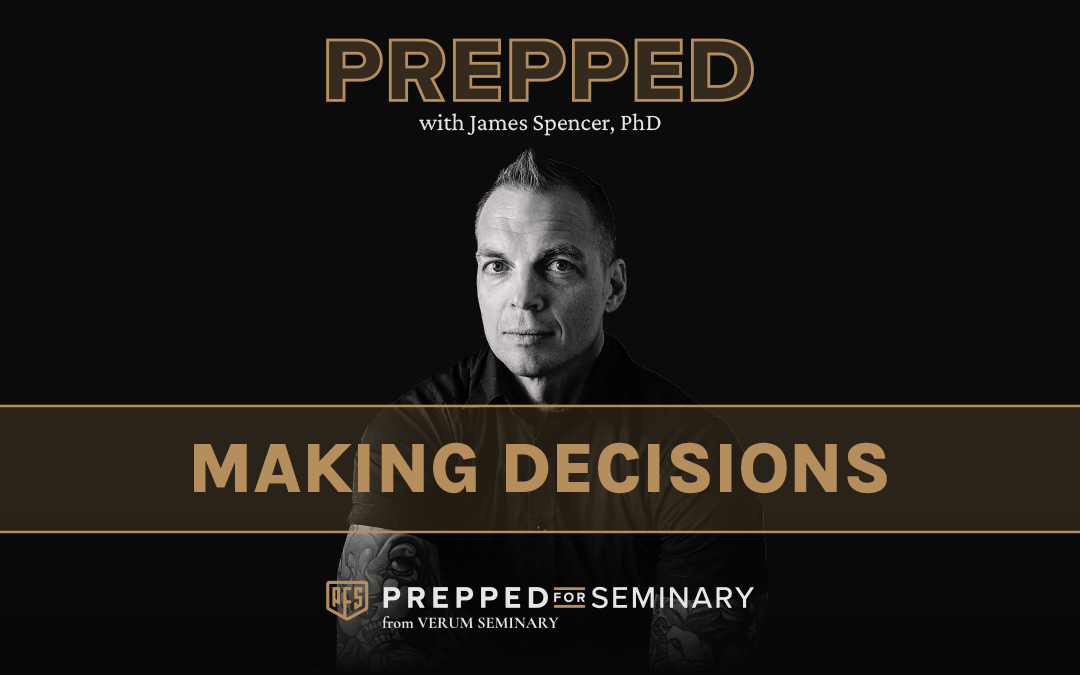https://podcast.preppedforseminary.com/justification-by-faith-romans-4-and-james-2/
We often want to follow God in the big moments—career decisions, relationships, major life moves. But the real test of our faith isn’t just in those milestone events. It’s in the daily, often unremarkable decisions we make: how we respond to difficult people, choose to spend our time, and prioritize God when no one else is looking.
It’s not just about hearing from God. It’s about positioning ourselves to respond to Him over and over again.
It starts with listening. And it matures in obedience.
Listening Starts With Attention
I’ve never heard God speak audibly. But I have learned to recognize His presence. Listening to God, in the way I understand it, isn’t about receiving mystical insights or waiting for goosebumps. It’s about paying attention.
And paying attention takes practice.
If we’re going to respond to God, we have to notice Him. We have to acknowledge His presence—not just in theory but in the lived moments of our day.
In a world that pushes for productivity, quiet awareness feels unnatural. But without it, we’ll miss God altogether. Scripture gives us a pattern—like Elijah in 1 Kings 19, who learned that God wasn’t in the wind, earthquake, or fire, but in the gentle whisper. God’s voice doesn’t always come through dramatic disruption. Sometimes, it’s a nudge in the stillness.
And we have to slow down long enough to hear it.
“Wet, Yet Unimpressed”
There’s an image that’s stuck with me from a novel I read with my son. A seasoned warrior stands in the middle of a downpour—completely soaked, completely calm. He is, as the narrator says, “wet, yet unimpressed.”
That line hit me.
That’s the kind of posture I want in my life. I want to be someone who stands in the storm—not untouched by it, but unmoved by its chaos. I want to live in such deep awareness of God’s presence that no amount of cultural noise, personal discomfort, or swirling uncertainty can steal my peace.
We don’t want to suggest that suffering is trivial. It’s not. But when we suffer with God and respond within the difficulty, that suffering becomes redemptive. It shapes us, grows us, and teaches us to endure—not through our own strength but by paying attention to the One who is always working for our good.
When we really understand that God is present, everything changes. We slow down, listen better, and respond more faithfully.
Obedience Forms Us
Obedience isn’t a one-time choice. It’s a posture. And, over time, it becomes a way of life.
In Romans 6:4, Paul writes that we were raised with Christ “so that we might walk in newness of life.” That walking isn’t metaphorical—it’s deeply practical. It means that our day-to-day choices reflect our salvation—not to earn God’s love, but because we’ve been set free to live differently.
The more we obey, the more our desires change. Our hearts begin to shift. And what once felt like obligation becomes joy.
Psalm 37:4 reminds us that when we delight ourselves in the Lord, He gives us the desires of our hearts—not because He’s a cosmic wish-granter but because He reshapes what we want. And when our delight is in Him, obedience doesn’t feel like loss—it feels like freedom.
Practicing a God-Centered Rhythm
If we want to be people who consistently hear and obey, we need practices that train us to pay attention. Here are a few rhythms I’ve found helpful:
1. Scripture and Prayer—Grounded in Community
I try not to study scripture in isolation. When I’m reading complex books like Revelation, I want wise voices around me—through commentaries, theological articles, or conversations with trusted friends.
And when I pray, I don’t just bring my requests. I try to pray through scripture. I ask God to form me through what I’m reading, to give me pleasure in obedience, and to help me recognize where I’m resisting Him.
2. Daily Reflection
One of the most formative questions I ask myself at the end of each day is this: Where did I notice God today—and where did I miss Him?
This kind of reflection helps me recalibrate. It reminds me that God was present even on a rushed or frustrating day. Maybe I just wasn’t paying attention.
3. Slowing the Pace
Productivity is a powerful idol in our culture. If we’re not careful, it can trick us into thinking busyness is the same as purpose. It’s not.
I’ve learned to keep my phone on silent most of the day. I check messages at set intervals. I’ve stopped assuming that an instant response is always necessary. Why? Because if I’m always reacting to my notifications, I’m not responding to God.
The goal isn’t to eliminate activity. It’s to ask: How fast can I go and still notice God?
So, What’s the Fruit?
When we begin to cultivate this rhythm—listening and obeying in the small moments—we gain more than clarity. We experience peace in uncertainty, joy in surrender, and confidence in direction.
And we give God what He’s always wanted: our attention.
Every decision—big or small—is an opportunity to demonstrate loyalty. Every moment is a chance to point to His glory.
And when we respond to God in the moment, even when it doesn’t make sense, we become more fully the people we were created to be.
Reflection Questions
- Where in your day do you most struggle to notice God’s presence?
- What does “listening to God” practically look like in your current season of life?
- Are there places where obedience feels like a burden instead of a joy? Why?
- What’s one rhythm (prayer, scripture, reflection, rest) you could lean into this week to help you slow down and respond more faithfully?
- What would it look like for you to be “wet, yet unimpressed” in the storm you’re facing right now?
